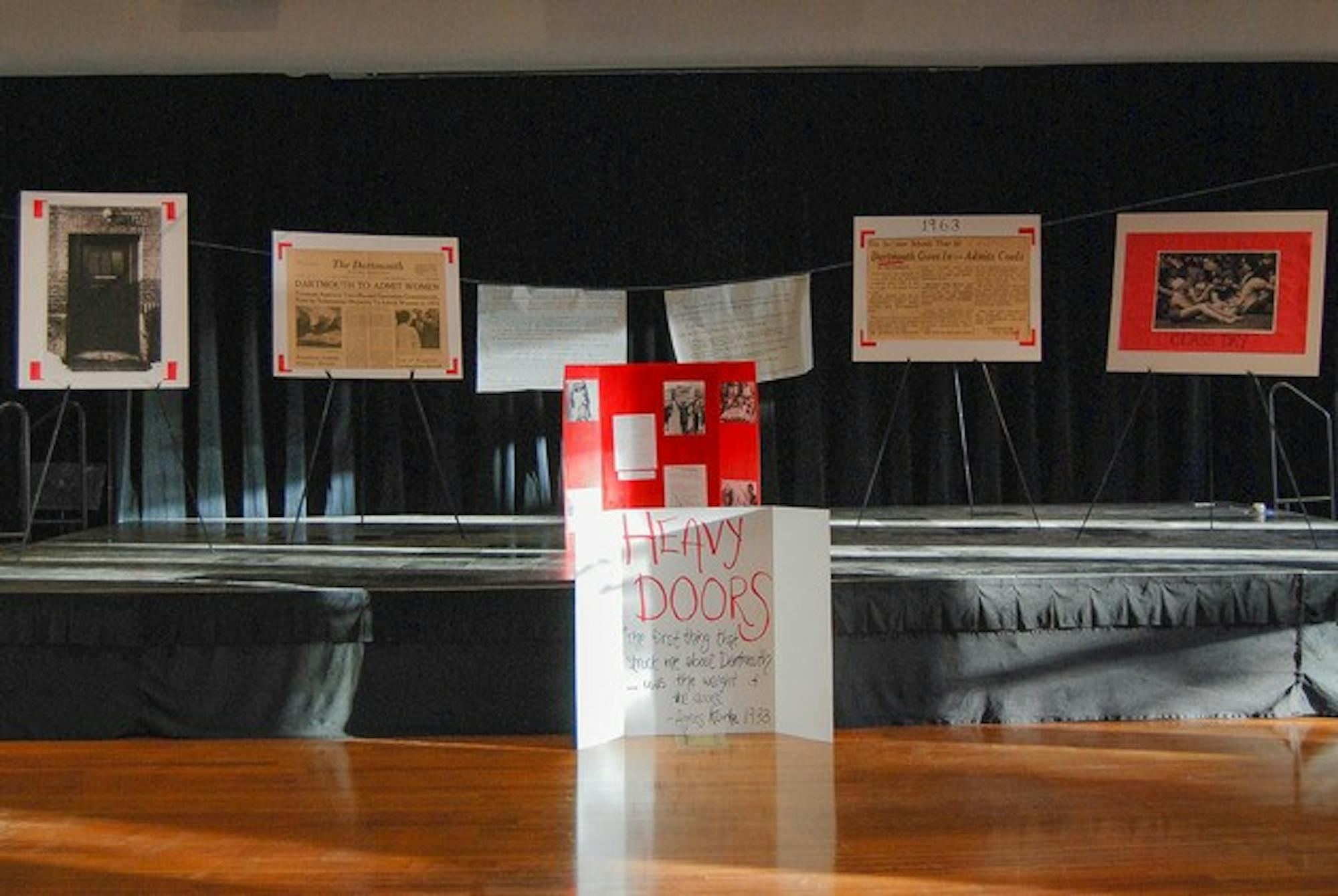"Heavy Doors: A History of Coeducation at Dartmouth," is an annual event organized by Daughters of Dartmouth, but the display did not go up last year. It is not a response to recent campus events, such as the Dimensions show protest or class cancellation, a group member who wished to remain anonymous said in an email.
The exhibit centered around photos of Dartmouth women in the 1970s protesting the antagonistic climate on campus. Some posters documented positive events in the early years of coeducation, including a photograph of Dartmouth's first female graduate, while another read "Why Beer Is Better Than Women."
Toward the back of the exhibit were two posters, titled "Dear Cunts" and "Dear Dicks." The first consisted of a handwritten transcription of a letter, slipped underneath the doors of an all-female residence hall in 1973, that requested women, called "cohogs," to go topless at all times. The authors called the women's presence on campus "in direct confrontation with the goals we consider sacred." The second was a satirical response by female students with equally outrageous demands for male students.
Students who walked past the exhibits expressed support for the display's message and its attempt to raise awareness of gender issues.
"I think it's really neat to have a historical perspective about something that's still prevalent on campus," said Ali Procopio '13, a co-director of Mentors Against Violence. "It's a cool exhibit and a good reminder of some really relevant issues."
Peter Governali '15 said the display succeeded in bringing "awareness to what a novelty women were at the time."
Some students said they wished the exhibit had been held in a more noticeable space.
"I'm really glad that this exhibit was put on because it draws attention to an important issue," Laura Cressman '14 said. "I would love to see it more often and on a larger scale."
Coeducation at the College continues to evolve, women's and gender studies professor Giavanna Munafo said.
"At Dartmouth, coeducation seems to be an ongoing process, not just because our population is increasingly gender diverse, but also because the gendered nature of the place remains contested," she said. "Women aren't a minority, but still too many women say they feel like guests."
The exhibit comes to campus at a more inclusive time in the College's history.
"As I was reminded by an alum this weekend, Dartmouth has changed enormously," Munafo said. "The student population has become more diverse in all sorts of ways."
Last February, Daughters of Dartmouth placed 171 dolls on the steps of Dartmouth Hall to raise awareness of sexual assault.
The number represented the victims who had personally told members of Daughters of Dartmouth that they had been victims of sexual assault and violence.
Of the 171 victims, only 11 reported their stories to the College. The group focused on the discrepancy between the number of victims and the minority who reported their stories, rather than count the number of victims at Dartmouth.
When asked last year about the group, a member said using names to identify group members might exclude those who already have negative biases toward the members, doing the victims of sexual assault a disservice.
"It's so the community can better observe the message, not the messenger," she said.
Emily Eisner '14 said this year's display in Collis sheds light on Dartmouth's growth and helps contextualize how some groups may still feel uncomfortable on campus.
"It's good to know our college's history with these issues, but we shouldn't just think about it as an issue of the past," she said.




